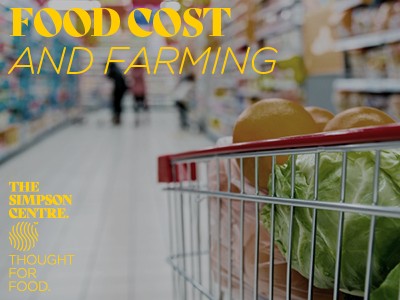Our People Feature: Philip Bazel, Research Associate, Fiscal and Economic Policy

Philip Bazel looks on a sales tax as an acquired taste for Albertans, who so far have shown little interest in acquiring such a taste. Nonetheless, he says a sales tax is a “pretty clean revenue source,” that has fewer negative impacts than other types of taxes. And while Alberta “falls flat” on the sales tax scenario right now, it is definitely competitive with other provinces when it comes to corporate tax rates.
“The corporate tax rate is 12 per cent, right along the baseline,” Bazel says. If any Alberta government wants to dip a toe into possibly poisoned sales-tax waters, it would be best to start with a small HST. “Maybe start with two or three per cent,” Bazel says. “A sales tax would potentially be fiscally responsible, although not politically popular.”
A research associate at the University of Calgary’s School of Public Policy, Bazel’s interest is tax competitiveness. He’s done consulting work on the issue with Israel, Australia and provincial governments in Canada.
“Policy-makers in different countries contact us. Analysts from the World Bank or the OECD are in touch about our data and results. There’s an international audience for our work,” he says.
The common thread running through his work internationally is the sales tax: “It’s the first thing that people would comment on, that Alberta lacks a value-added sales tax.”
Bazel is among the researchers at The School who recently examined the resource tax competitiveness in oil and gas jurisdictions throughout North America for the Fraser Institute.
“Alberta is relatively competitive across Canada. Saskatchewan is one of the less competitive jurisdictions. We’re discussing it with them; they were upset to see that result,” he says. Saskatchewan has a provincial retail sales tax, which is different from an HST. “Producers pay it on the input production or manufacturing,” he says.
He admits there are “not a lot of easy economic answers for Alberta,” but with a full HST of seven or eight per cent, there’s a potential to recoup the estimated $10 billion a year Alberta loses during the bust part of its storied boom-and-bust economic cycle.
Bazel is a born and bred Albertan who studied political science and philosophy at Concordia University in Montreal and then earned his graduate degree at The School. He started out working with his capstone thesis adviser, Jack Mintz, on infrastructure economics and public policy around retirement income. He’s been focusing on tax competitiveness the last three or four years.
While he’s an advocate for a provincial sales tax, he acknowledges the “very real implications for low-income people.” A sales tax will really hurt them, he says, “unless there is a refundable tax credit for them. The middle class and above may not like it, but it’s kind of like medicine.”
Regardless of how such a tax might be mitigated for lower-income earners, it remains anathema for Albertans for whom the “provincial ethos is so caught up in prosperity through oil and gas development.”
The School’s research on tax competitiveness has seen some real effect in the world outside the university. “Often, what our writing does is spur the conversation and keep it going,” Bazel says.
Right now, Saskatchewan is still fretting about the results of the oil-jurisdiction study.
“They’re worried enough that they think we’ll change our calculations. They have a lot of temporary incentives, initial investment incentives. We’re looking at the producing well that’s paid off its capital, very much a baseline scenario. (Saskatchewan) may want to at least keep up with their neighbours on comparative royalty rates on comparative well sizes and production volumes. We’re about to dig a lot deeper in this,” Bazel says.

